Dive into the world of herbal teas! Explore 7 varieties for health benefits & delightful flavors. Read on!
In a country like India, where chai is practically a national beverage, the idea of tea is deeply
ingrained. However, beyond the familiar milk-and-sugar concoction, a world of herbal teas awaits, offering not just delightful flavors but also a wealth of health benefits.
These are not your regular teas made from tea leaves (Camellia sinensis). Herbal teas, also known as tisanes, are infusions made from herbs, spices, flowers, fruits and other plant materials.
They are naturally caffeine-free and have been used for centuries in traditional medicine for their therapeutic properties. So, ditch the usual and explore these seven herbal tea varieties to boost your well-being, the desi way!
Tulsi Tea (Holy Basil): The Queen of Herbs
Tulsi, revered in India as the “Queen of Herbs,” is a staple in many households. This sacred plant has been used in Ayurveda for its medicinal properties. Tulsi tea is made from the leaves of the tulsi plant and has a slightly peppery and clove-like flavour.
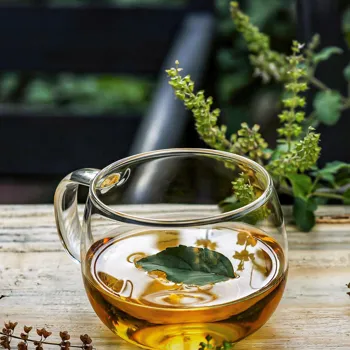
Tulsi tea is packed with antioxidants and adaptogens. Adaptogens help the body cope with stress, making tulsi tea a great choice for those feeling overwhelmed. Sipping a cup of tulsi tea can help ease anxiety and promote relaxation.
It possesses immune-boosting properties, thanks to its high levels of antioxidants and vitamin C. Regular consumption can help strengthen your body's defenses against infections, making it a go-to beverage during flu season.
The herb boasts anti-inflammatory properties, which can help reduce inflammation in the body. This can be beneficial for managing conditions like arthritis.
Ginger Tea: A Zesty Elixir
Ginger, a common ingredient in Indian cooking, is also a potent medicinal herb. Ginger tea is made by steeping fresh ginger slices or grated ginger in hot water. The result is a spicy and warming beverage that is particularly beneficial for digestive health.
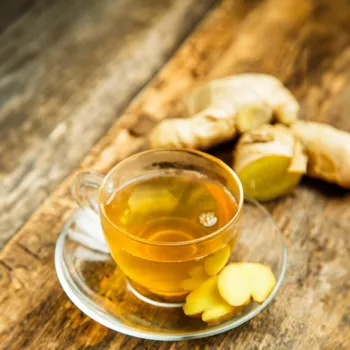
Ginger is well-known for its ability to soothe nausea and relieve indigestion. Sipping ginger tea can help settle your stomach after a heavy meal or during travel sickness. Further, it's an excellent remedy for morning sickness during pregnancy. It has powerful anti-inflammatory properties.
These properties can help reduce muscle soreness after exercise or ease the pain associated with arthritis. Ginger tea can help combat cold and flu symptoms. Its warming effect can soothe a sore throat, clear congestion, and boost your immune system.
Adding a squeeze of lemon and a touch of honey can enhance its effectiveness.
Chamomile Tea: A Calming Brew
Chamomile, with its delicate floral aroma, is renowned for its calming and sleep-inducing properties. Chamomile tea is made from dried chamomile flowers and has a mild, slightly sweet flavour. It's a popular choice for those seeking relaxation and a good night's sleep.
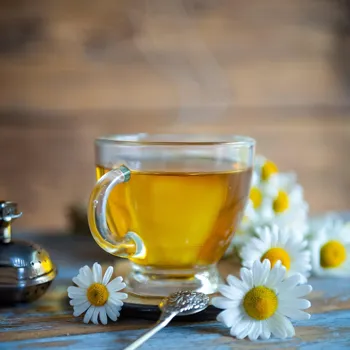
It is widely used as a natural sleep aid. Drinking a cup of chamomile tea before bed can help calm your nerves, reduce anxiety, and promote restful sleep. Chamomile possesses anti-inflammatory properties, which can help soothe skin irritations and promote wound healing.
It is considered beneficial for the digestive system. It may help relieve bloating, gas, and other digestive discomforts.
Peppermint Tea: The Refreshing Reviver
Peppermint tea, made from peppermint leaves, is known for its refreshing and invigorating properties. It has a cool, minty flavour and can be enjoyed hot or cold. Peppermint tea is particularly beneficial for digestive issues.
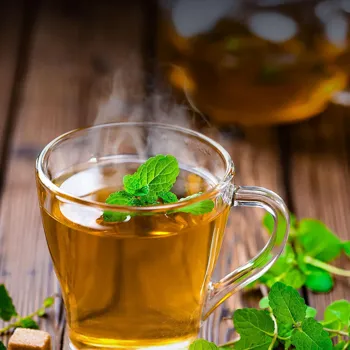
Peppermint is known to relax the muscles in the digestive tract, which can help relieve bloating, gas, and indigestion. It's also effective for treating irritable bowel syndrome (IBS). Its strong scent can help clear nasal congestion and relieve sinus pressure.
Drinking peppermint tea can also soothe a sore throat and ease coughing. It helps boost energy levels and improve focus. If you are feeling sluggish or dealing with a mid-afternoon slump, a cup of peppermint tea can provide a refreshing pick-me-up without the jitters of caffeine.
Hibiscus Tea: The Tangy Delight
Hibiscus tea, made from the vibrant petals of the hibiscus flower, is gaining popularity for its tart and fruity flavour and its impressive health benefits. It has a bright red colour and can be enjoyed hot or iced. It is known to help lower blood pressure.
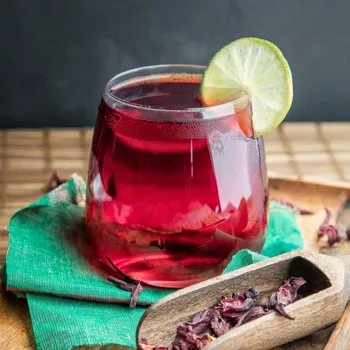
Studies have shown that regular consumption of hibiscus tea can help reduce both systolic and diastolic blood pressure. It is rich in antioxidants. These antioxidants help protect your cells from damage caused by free radicals, potentially reducing the risk of chronic diseases.
Hibiscus tea can help lower cholesterol levels. Research suggests that it can help reduce LDL (bad) cholesterol and increase HDL (good) cholesterol.
Lemon Balm Tea: The Mood Booster
Lemon balm, a member of the mint family, has a lemony scent and flavour that is both refreshing and calming. Lemon balm tea is made from the leaves of the lemon balm plant. It is traditionally used to improve mood and cognitive function. It is known for its ability to reduce stress and anxiety.
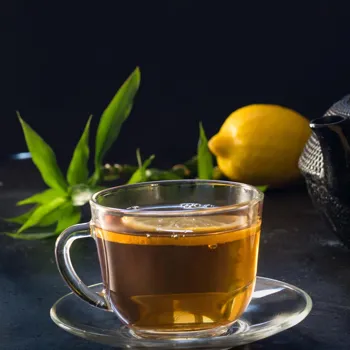
Drinking lemon balm tea can help calm your nerves, promote relaxation, and improve your overall mood. It may improve cognitive function and memory. Some studies suggest that lemon balm can enhance alertness, concentration, and memory.
Lemon balm may help relieve symptoms of herpes simplex virus (HSV) infections, such as cold sores. Applying lemon balm tea or extract topically can help reduce pain and speed up healing.
Licorice Root Tea: The Sweet Soother
Licorice root tea has a naturally sweet flavour and has been used for centuries in traditional medicine for its various health benefits. It is made from the root of the licorice plant. It helps soothe digestive issues. Licorice root can help relieve heartburn, indigestion, and stomach ulcers.
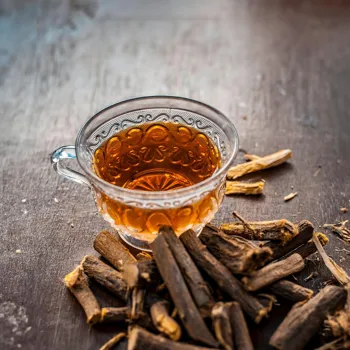
It has anti-inflammatory properties that can help soothe the digestive tract. It may help relieve coughs and sore throats. It has expectorant properties, which means it can help loosen phlegm and make it easier to cough up.
It also has anti-inflammatory properties that can soothe an irritated throat. It is thought to support adrenal function. Adrenal glands produce hormones that help regulate stress response, and licorice root may help support their healthy function.
Incorporating these herbal teas into your daily routine can be a simple and delicious way to boost your overall health and well-being!
AI Generated Content. Glance/InMobi shall have no liability for the content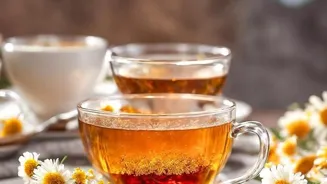










![[WATCH] T20 World Cup 2026: Gautam Gambhir hosts dinner for Team India players ahead of Namibia clash](https://g-mob.glance-cdn.com/public/fc/image/7gXS1xdhs5Q0.webp)



